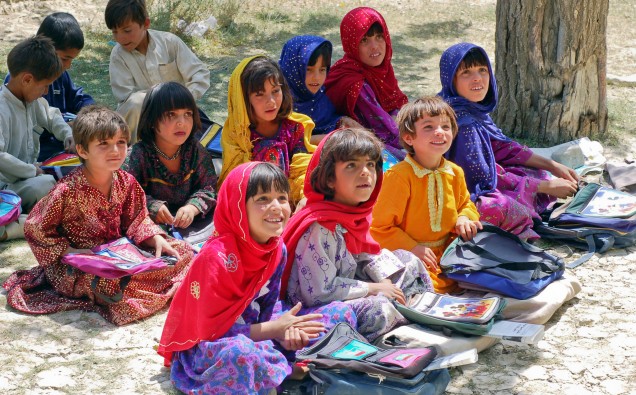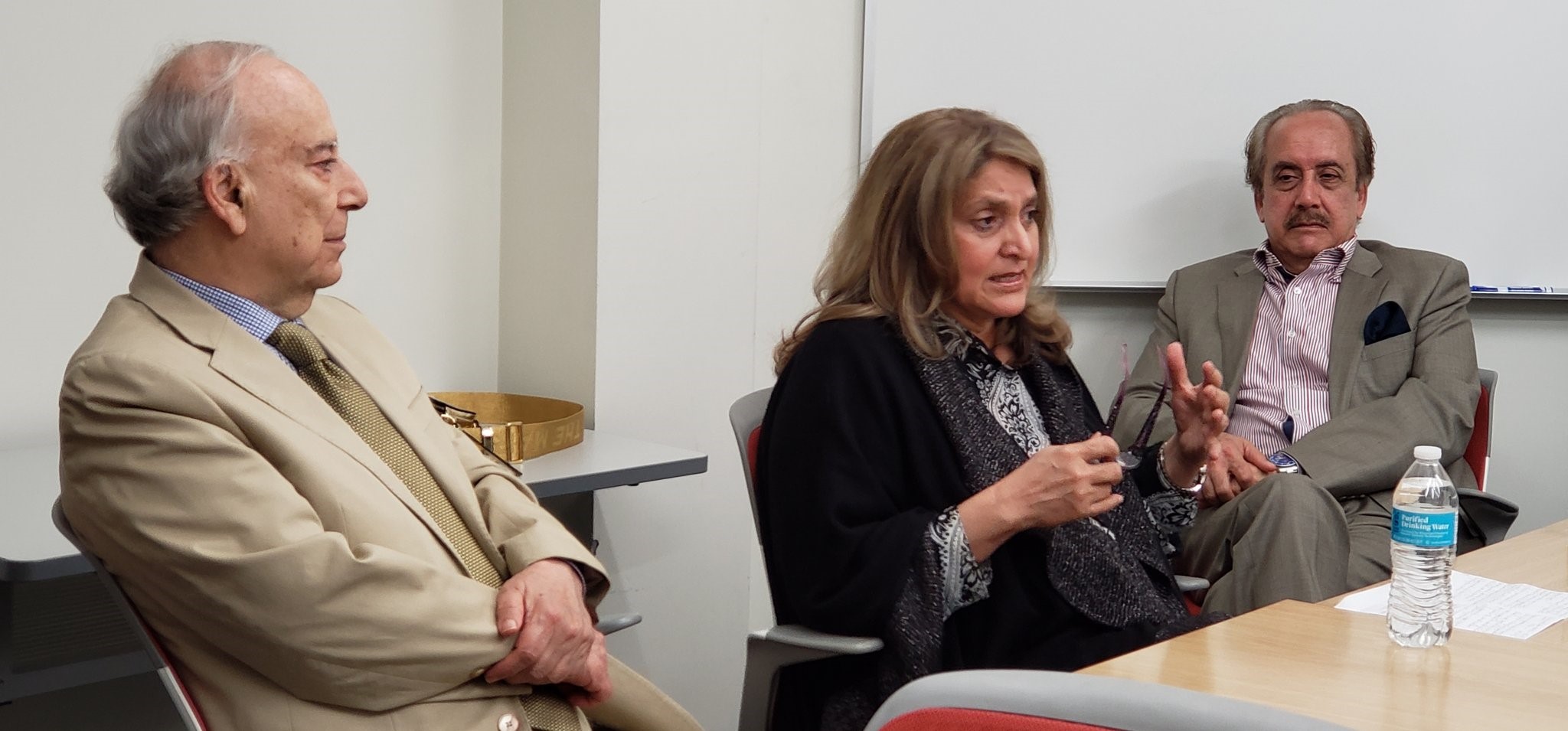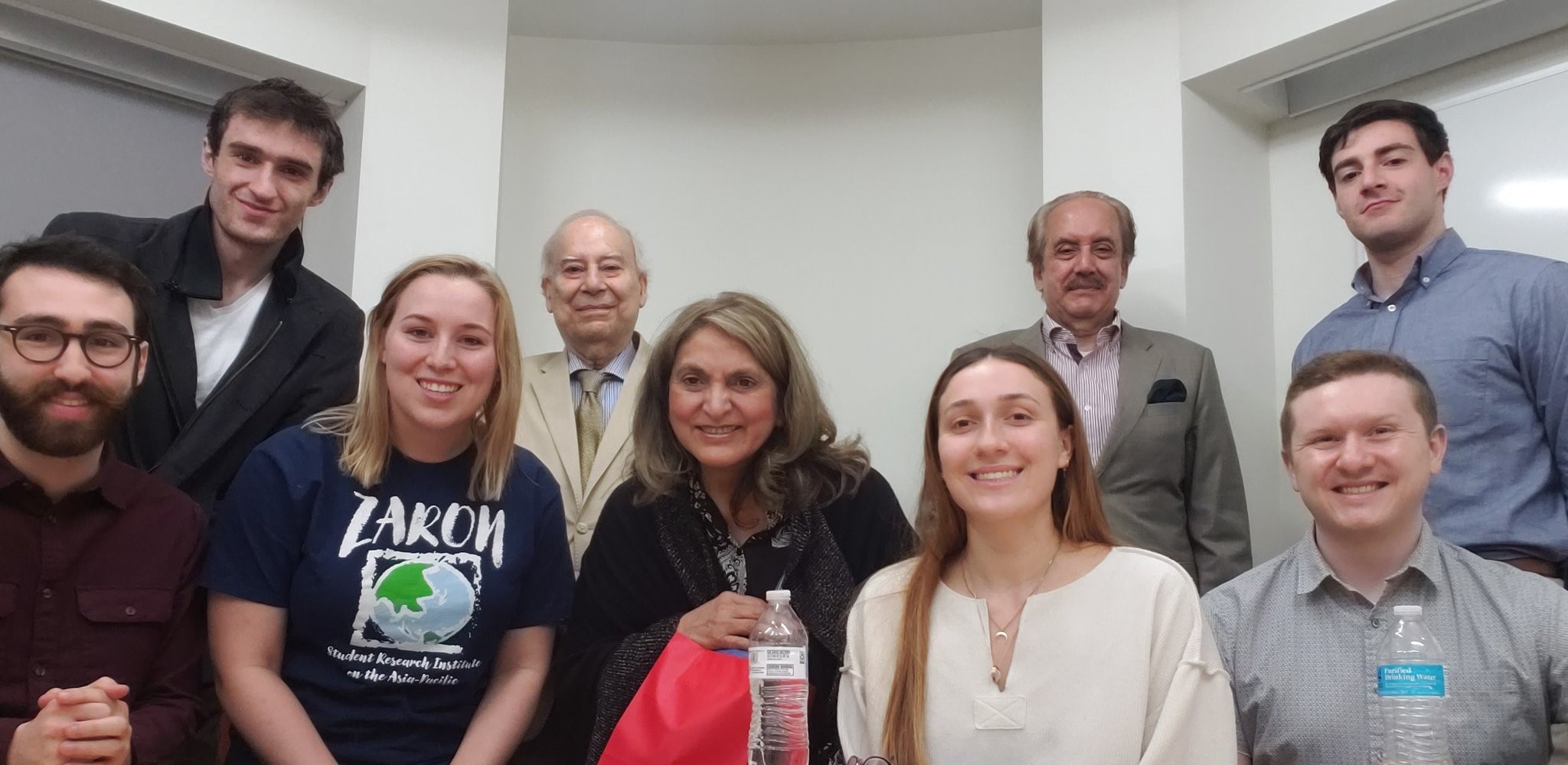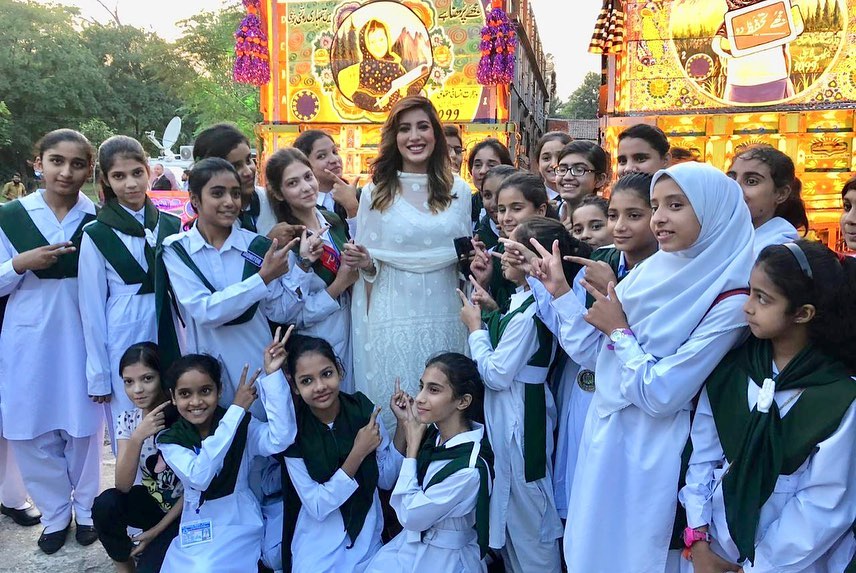
In a small classroom located on the lower level of American University’s School of Communication building, Mrs. Fauzia Kasuri was knocking down patriarchal narratives and laying the groundwork for the future success of women in Pakistan.
Our class on Pakistan and the Region, and inaugural course at American University, is no ordinary class. Led by former Ambassador Akbar Ahmed, who has served more than three decades to the Civil Service in Pakistan and has been named by the BBC “The world’s leading authority on contemporary Islam,”[1] this small class endeavors to explore a part of the world that is oft ignored by global superpowers and American media.
The course has also planned to host several top speakers like policy analysts Shuja Nawaz and Mowahid Shah, Indian scholar Pawan Bali, and Lieutenant Colonel Joe Evans. Given Pakistan’s status as a nuclear power and intense rivalry with India, its direct neighbor and a nuclear power, popular ignorance of the affairs of Pakistan can prove deadly.
At the invitation of Professor Ahmed, Mrs. Kasuri was invited to speak on the role of women in Pakistani society, offering a glimpse into the internal affairs of a country that plays a vital role in the U.S.’ war in the Middle East and how its treatment of women today does not bode well for its future.
From her time as the former President of the Women’s Wing in the Pakistan Tehreek e Insaf, a political party in Pakistan, as well her personal experience growing up as a woman in Pakistan, she details the ways in which the role of women in Pakistan society is unrealized and often sidelined in favor of protecting the relatively higher status of men. Going directly against Pakistan’s constitution — which demands total equality between men and women — political elites continue to deny equal rights and opportunities to the women of Pakistan, a move which further suppresses the economic and democratic potential of Pakistan.
Mrs. Kasuri’s time in office revealed the ways in which the issue of women’s rights in Pakistan is far more extensive than she had previously believed, and when she tried to push back against policies by her own party that failed to protect women, led to her resignation and her decision to unmask a political system that is still set on undermining the role of women in Pakistan society.
As Mrs. Kasuri declared in the first few moments of her introduction to the class, “Women empowerment is a global interest.”
Yet, in Pakistan, only 45.8 percent of women were literate compared to 70 percent of men in 2018; similarly, of the 46 million women registered to vote, only 40 percent participated in the 2018 elections.[2] Women are left behind in every aspect of Pakistani society. In rural areas, the challenges facing gender equality are startling: women have less access to financial structures thus making them more reliant on their husband’s income, they do not have access to contraceptives and viewed for their reproductive capabilities, and some women are never even able to register for an ID, rendering them without a legal identity in Pakistan. And, little is being done by the Pakistani government or local communities to address the issues facing women.
Rather, it is international NGOs and institutions that have been left to fight on behalf of Pakistani women. For example, it was UN Women, a United Nations entity that works to empower women, that collaborated with the Pakistan Tehreek e Insaf party to ensure that a minimum number of female voters vote in an election or said election would be declared invalid.
By getting women more involved in the political and economic process in Pakistan, Pakistan can rise from its low ranking on the Gender Inequality Index — where it currently ranks 133 out of 160[3] — to provide equal opportunities to all of its citizens and improve its economic standing in the world. As a woman who has been blessed with opportunities to pursue an education, seek out career opportunities, and be active in the political process, it is empowering to look back and see how far society has come.
However, as I listened to Mrs. Kasuri speak of the issues facing women in Pakistan, it was a dark reminder that the freedoms that I enjoy are not universal. When I look to the future, I do not want to explain why there is a wage gap between men and women to my daughter or future generations of women; I do not want to have to say that her word is worth less than a man’s in a court of law nor do I want to say that she is not fit to run for president. When I was told I was not smart enough to be accepted to the University of Illinois Laboratory High School, I took the test and proved them wrong.
When I was told I was too short and not strong enough to be an athlete, I qualified for the Illinois State swimming championship four years in a row and traveled the world teaching sports camps at U.S. Air Force bases. As I prepare for the working world and the discrimination facing women in the workplace, I am prepared to once again prove the naysayers wrong. The era of being told “No” is over for women and it is my duty as a woman to ensure that equal opportunities are extended to women across the world as we embark into the future.
As mentioned earlier, “Women empowerment is a global interest.” By continuing to disrepute the status of women in society, it is a disservice to ourselves and what women are capable of.
Until women are acknowledged as equals and granted the same rights and opportunities as men, countries like Pakistan will remain in their own way in their effort to develop and stem violence against women. It is only through the efforts of women like Mrs. Kasuri that the world can achieve true steps forward in the fight for gender equality and build a better global society.
It is my deepest honor to thank Professor Ahmed for inviting Mrs. Kasuri to our quaint classroom and to extend an even deeper sense of gratitude to Mrs. Kasuri for speaking to us. For women across the world, I express my sincerest thanks to Mrs. Kasuri for all that she has done for Pakistani society and for her efforts in the fight for gender equality.


















I’ve known you all your life and I am so proud of the woman you have become. I Look forward to seeing the great things you WILL accomplish.